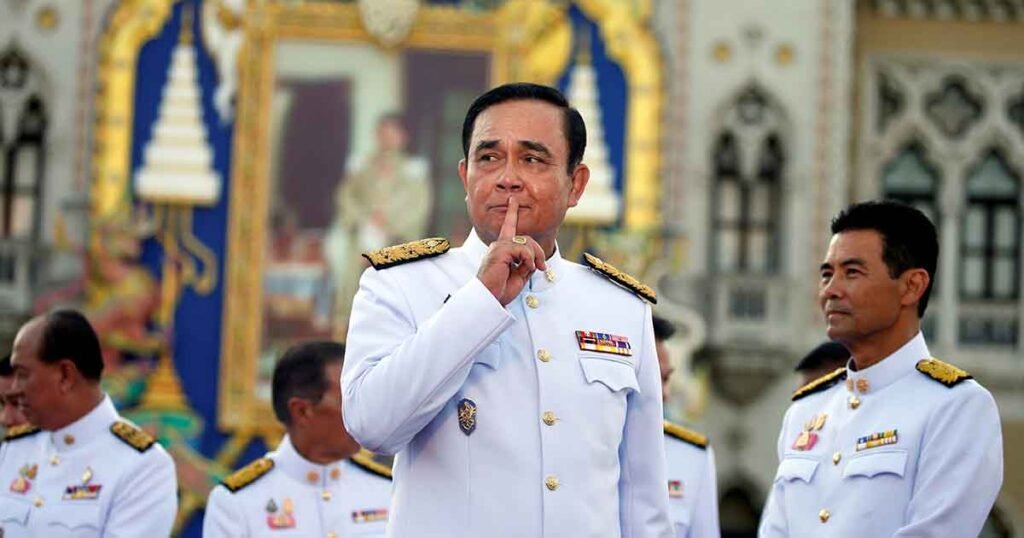Move Forward ‘s winning in Thailand’s general election showed that the reformist opposition having no military backup has won the most seats and the largest proportion of the popular vote in a general election. According to experts, this dramatic shift in the political landscape is a result of the younger voter demographic and shifting political and social trends.
About 40 million Thai voters sent a clear message on Sunday that they got dissatisfied with nine years of military rule and want change. The official results are not anticipated for weeks, and there will be a period of intense coalition-building among the parties. However, the Thai military and monarchy retain the right to determine who will rule. Nevertheless, the generals who have governed the country since 2014 have realized that young voters no longer support military-backed governments.
You Can Also Read: TECTONIC SHIFT IN THAILAND ELECTION RESULTS AS ‘MOVE FORWARD’ WINS
The most significant lesson from Monday’s parliamentary election is that an overwhelming majority of Thai voters strongly desire change. Following a resounding rejection of military-backed parties by the electorate, Move Forward has won the majority of seats in the most recent general election in Thailand, demonstrating at least the voters’ will.
From urban protests to exceptional victory
In 2020, Thai voters gave a resounding majority of seats in the House of Representatives to the two parties that openly challenged the political supremacy of the military and the monarchy. This victory was fueled by a youth participation surge and massive urban protests against military rule. Pheu Thai, led by the 36-year-old daughter of former prime minister Thaksin Shinawatra, won an estimated 141 of 500 seats. Move Forward, the new progressive party led by Pita Limjaroenrat stunned the world by defeating Pheu Thai and gaining an estimated 151 seats. This election was a monumental exception to the general rule as youth participation is infrequent in elections.
Pita Limjaroenrat, a 42-year-old Harvard Kennedy School graduate and business executive, leads Move Forward. The late surge of support for Move Forward appears to have originated from millions of first-time voters who were likely frustrated by the dynastic politics represented by Pheu Thai, indicating that voters chose a significant political realignment.
The younger demographic structure changed the chain
According to experts, the main reason for this dramatic shift in the political landscape is the younger voter demographic structure and shifting political and social trends. More than 70 percent of this election’s eligible electors were younger than 40 years old. Analysts noted that young voters desire to change and demand political reform, and in response to their reform demands, the Move Forward Party released several campaign policies aimed at improving the welfare of young voters.
There were 52 million eligible voters, and about 75 percent of them had cast ballots.

Incumbent PM faces cruelest defeat
Prime Minister Prayuth Chan-ocha, who led the 2014 coup and resigned from the military to become ostensibly a civilian leader, appears to be the primary loser. His United Thai Nation Party stood fifth in the constituency ballot, with only about 36 seats in the parliament. After nine years in power, Mr. Prayuth is widely unpopular, according to polls, and he campaigned on a promise of continuity, which Thai voters plainly rejected. Even a rival military party led by Prawit Wongsuwan, a retired general and Mr. Prayuth’s former deputy, ended up behind Mr. Prayuth’s party.

Military conscription to end?
The military viewed both the two major opposition organizations as unpalatable. The generals disliked and feared Pheu Thai for its populist politics, which notably appeals to the poor in Thailand’s northeast. Mr. Thaksin and subsequently his sister were both deposed. However, Move Forward poses an even greater threat to Thai society’s military and conservative elements, such as by promising to end military conscription and revise the country’s strict “lèse-majesté” law, making it illegal to criticize the monarch.
The people of Thailand have spoken, but they are not a sovereign nation. The Thai military and monarchy always reserve the right to determine who will rule and how much power they will share with the people’s elected representatives. The two opposition parties swiftly announced their intent to establish a coalition, with Pita presumably serving as prime minister. The most immediate obstacle to this plan is Thailand’s 250-member unelected Senate, which can dilute and thwart the majority of the new coalition: 292 is a vast majority among 500, but not 750. Between the Senate and numerous small parties in the House, a pro-junta and pro-royalist majority could still be formed.
In the past fifty years, the Southeast Asian kingdom has alternated unpredictably between electoral democracy and explicit military rule. However, the military and monarchy have always dominated Thai politics. Could things be finally shifting now?


